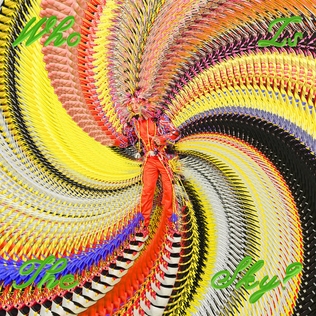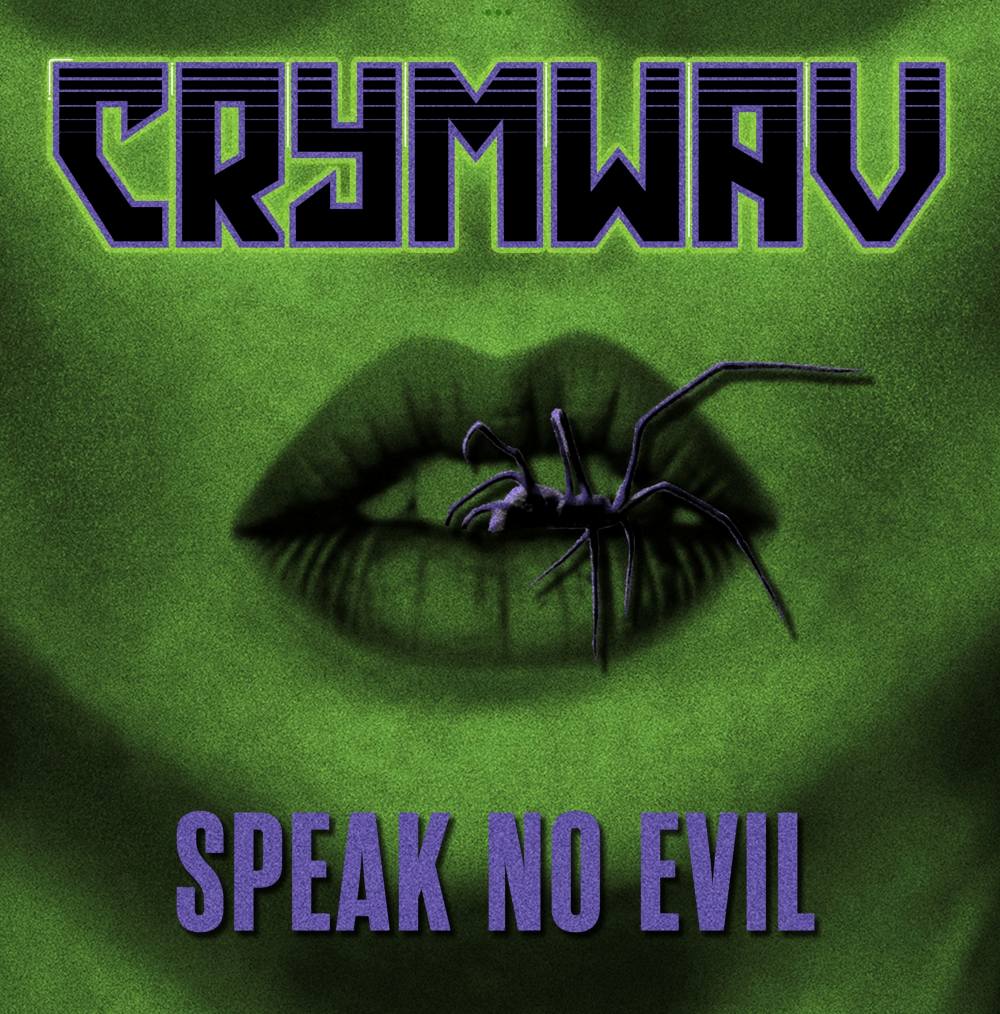David Byrne: Who Is The Sky
3.5 out of 5.0 stars
David Byrne’s Who Is The Sky? finds the art-pop visionary once again turning life’s smallest absurdities into grand philosophical theatre. It’s an album that treads the line between genius and overexposure- radiant with optimism and moments of sickening joy.
David Byrne’s work since the inception of Talking Heads bas been defined by his curiosity – how did I get here? How do I work this? Say something once, why say it again? They’re songs with a deep self-awareness, sometimes with the awareness that he is not aware. These probing curiosities are an exploration by Byrne of his own, and therefore our own, place in the world. Sometimes the topic is our bodies, sometimes it’s love and sometimes it’s buildings. At the core of Byrne’s work, there is an analysis of the cosmic question “what are we?” and this album is another enquiry in to such trivial matters, often conducted in molecular detail and in his unique and oddball way.
Opening track and initial single Everybody Laughs sets the tone for the album with a relentlessly upbeat study of what people have in common. Human beings are capable of extraordinary things but we all share an ability to laugh, cry and we all have an interest in what each other are doing and saying. Promoting his American Utopia show, Byrne suggests that the loose, mobile nature of the show was inspired by the idea that audiences are less interested in amps and screens and are instead there to look at ‘other people’. That show, as well as the glimpses we have seen of the new live show, progresses this idea. Everybody Laughs is proof that Byrne has not lost sight of this observation, nor has he lost his interest in the musical tapestry by closing the song with a gospel section. A characteristically musically diverse and thoughtful, cheerful opener.
In an interview about Who Is The Sky? Byrne reveals he has always had a number of no-go topics for writing, including songs about the act of singing itself. However, a song about this very topic emerged by accident, it seemed to him. Offering an off-piste perspective about the minutiae of his lifestyle, When We Are Singing is about an audience watching a performance. The sound is polished, as you may expect from a veteran songwriter in his golden years, but the New York trendiness of the sound makes it well-suited to a gentrification cafe. This is not to say it lacks its interesting moments, as Slippery People fans will notice another wacky mouth solo. Whimsical takes like this on the human condition makes this album an endearing listen.
As this boundlessly happy album progresses, a number of different takes on the topic of love emerge. This Must Be The Place which, for many, is the magnum opus of awkward love songs, is a difficult feat to top. Instead of topping it, Byrne is able to flip this skewed take on romance on a number of its sides. A love song to his apartment during covid, My Apartment Is My Friend, will be contrary to many of us who couldn’t wait to get out and see family and human friends. However, this is not the first time Byrne has written a song about buildings. A familiarity to a space we can call ours is a universal touch point. His recent engagement will have been a catalyst for this odyssey of awkward love; A Door Called No shows us how his experience of love has meant he actually is more
likely to say Yes. His voice here is more notably mature than on other tracks, but it does not do much to take away positivity from this album- should you choose to immerse yourself in it.
I say this because, for all the joy radiated by Byrne here, there are moments where the direct approach can become tiresome. Track 9, Moisturizing Thing, follows the idea of a moisturiser that makes you incredibly young-looking and the subsequent infantilising that would follow. Byrne says this is based on how his fiancee asks him to moisturise every evening. Perhaps this is too much of an insight in to Byrne’s daily routine and it can work against the mood of the LP to address such a mundane aspect of life. Getting a spark of inspiration from such a moment is something all creatives may aspire to. However, addressing such mundanity in a direct way can leave the listener disengaged. That is not to say that lacklustre moments like this leave you without a smile on your face; just like his previous album, American Utopia, the flatter tracks are buoyed by Byrne’s insightfulness.
The new live show features a Paramore cover, following the bands involvement with a Stop Making Sense tribute album. What Is The Reason For It? Features lead singer Hayley Williams in another thoughtful composition. David Byrne’s music is not just about making you think, he wants you to sing and dance along. The closing tracks of the Stop Making Sense film features a theatre crowd dancing together near the stage, which encapsulates the feeling of Talking Heads perfectly. What Is The Reason For It? Is a bold attempt at capturing thoughtfulness and grooves all at once, albeit in a very direct way. This song conjures memories of Byrne’s wonderful album Rei Momo, which utilises latin beats and percussion with an injection of Byrne’s left-field approach to the world.
Much like Moisturizing Thing, I Met The Buddha At A Downtown Party takes a small idea, almost a joke, to its conclusion. What is interesting about this piece is how it does not just ask the question what are we? It also asks the equally pertinent question what are we not? In the Talking Heads track The Big Country, Byrne makes a vehement stand against the rural way of life: “I wouldn’t live there if you paid me to”, he asserts. Songs about cities and art/the art world/artists are littered throughout his discography, including in The Avant Garde on this LP. A member of the Avant Garde he is, but religious he is not, he says on Buddha. The existentialist abandonment of religion even by Buddha himself is a curious topic for a joyful pop song, yet it works. Avant Garde and Buddha, alongside track I’m An Outsider, an expression of the desire to be a mind-reader, track this binary of what is and what is not. However, by the time the listener reaches Outsider it feels as if the positivity heaped on to the album has begun to grate.
Penultimate track She Explains Things To Me returns to Byrne’s admiration for his fiancée. In a role-reversal of mansplaining, Byrne reveals his gratefulness for the intelligence of his partner who he solicits artistic help from. Here, just as in other tracks on this album, the quality does not lie in its sound but in the idea. Instrumentation does
little to engage the listener who at this point in the album has overdosed on positive vibes. The same can be said for Don’t Be Like That, a plodding ponder upon what we want our partners not to do out of love.
Finally, LP closer The Truth addresses the harsh reality of hearing something you don’t want to hear. The truth is, this album is thematically a valuable addition to Byrne’s repertoire when viewed as more than a musician or a lyricist. His journalistic project Reasons To Be Cheerful counteracts the negative daily news cycle we are currently subjected to. Musically, there is much left to be desired on many of the tracks. He shows excellent form on the lead singles, often with a musical thread leading back through his musical past with hints of rock and Latin beats. However, the cheerfulness of the album wears thin long before it ends, and its direct approach counteracts its mood. The reconstruction of these songs as live performances will be something to monitor with interest due to the success of the American Utopia broadway show, a project similar in many ways. For fans of Byrne’s work, this is a must-listen, but repeated listens will be a rare occurrence.
~
All words by Kai Marshall. This is Kai’s first review for Louder Than War.
A Plea From Louder Than War
Louder Than War is run by a small but dedicated independent team, and we rely on the small amount of money we generate to keep the site running smoothly. Any money we do get is not lining the pockets of oligarchs or mad-cap billionaires dictating what our journalists are allowed to think and write, or hungry shareholders. We know times are tough, and we want to continue bringing you news on the most interesting releases, the latest gigs and anything else that tickles our fancy. We are not driven by profit, just pure enthusiasm for a scene that each and every one of us is passionate about.
To us, music and culture are eveything, without them, our very souls shrivel and die. We do not charge artists for the exposure we give them and to many, what we do is absolutely vital. Subscribing to one of our paid tiers takes just a minute, and each sign-up makes a huge impact, helping to keep the flame of independent music burning! Please click the button below to help.
John Robb – Editor in Chief






Leave a Reply